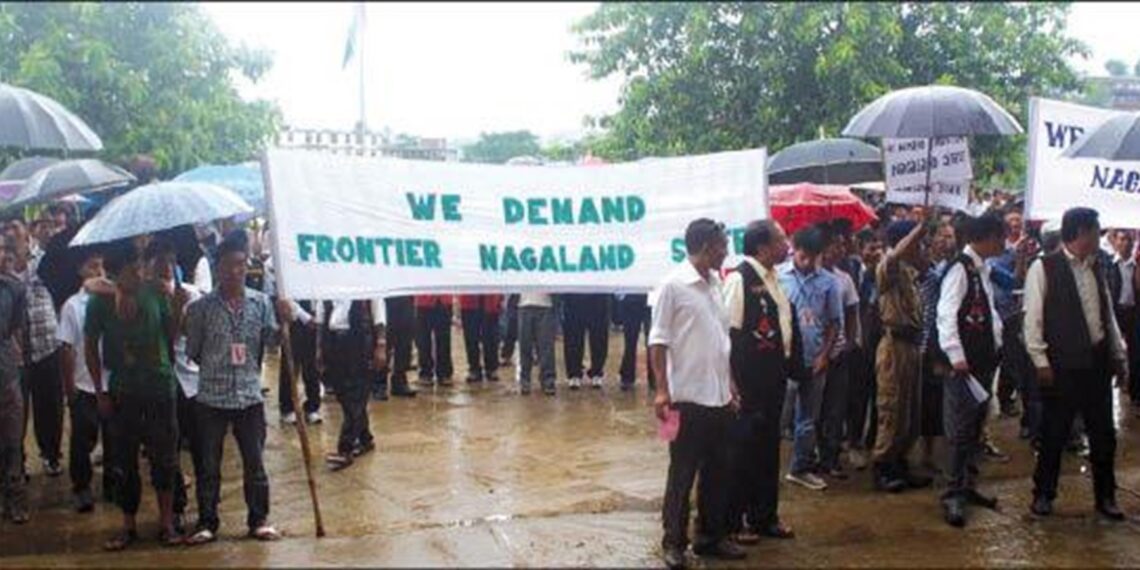Kohima: In a significant political development in Nagaland, the Eastern Nagaland People’s Organisation (ENPO) has announced its conditional acceptance of the Centre’s proposal for a new administrative arrangement under the banner of ‘Frontier Nagaland Territory’ (FNT), temporarily pausing its long-standing demand for separate statehood.
In a statement issued on Tuesday, the ENPO — the apex body representing tribal organisations across six eastern districts — said it had formally conveyed its position to the Ministry of Home Affairs (MHA), following consultations on the draft memorandum of settlement and related comments submitted by the Nagaland state government.
The FNT proposal, put forward by the MHA, covers the districts of Mon, Tuensang, Longleng, Noklak, Shamator, and Kiphire — areas the ENPO claims have been systematically neglected since Nagaland’s formation in 1963.
The organisation has been demanding statehood for the region since 2010, citing chronic underdevelopment and political marginalisation.
While reiterating its core demand for a separate state, ENPO said it was “compelled to temporarily narrow down” its stance due to the central government’s reluctance to concede full statehood at this stage.
However, the group made it clear that the FNT arrangement must be reviewed within 10 years and that unresolved issues would continue to be pursued through “democratic political processes.”
The ENPO emphasised that the proposed Frontier Nagaland Territory must be granted full executive, legislative, and financial autonomy, and that these powers should be implemented “in both letter and spirit.”
It also asserted that state subjects should coexist with FNT authorities under a shared governance framework, as per the guiding principles of the agreement.
Among the key conditions outlined by the ENPO were the establishment of a permanent High Court in Nagaland with a dedicated bench in the FNT, enhanced fiscal allocations from the Consolidated Fund of India, and greater legislative powers under Article 371A to address the region’s development deficit.
The organisation also demanded increased representation in Parliament through additional Lok Sabha and Rajya Sabha seats in the forthcoming delimitation exercise.
It proposed a power-sharing structure that respects decentralised planning and allows for the smooth functioning of both the Frontier Nagaland Legislative Assembly and a separate Eastern Nagaland legislative unit.
As part of its broader vision for local empowerment, the ENPO also called for the modernisation and upgrading of the traditional Village Guard organisation, including improved remuneration and recognition of their role in maintaining grassroots security.
ALSO READ: Centre restructures NSAB, appoints former R&AW chief Alok Joshi as chair
The Government of Nagaland, which is a party to the tripartite talks along with the ENPO and the MHA, had submitted its formal response to the FNT proposal in November 2024, the ENPO noted.
The organisation’s campaign for separation gained renewed momentum after it boycotted the 2024 Lok Sabha elections and abstained from participating in last year’s urban local body polls, in protest against what it described as persistent neglect by the state administration.















